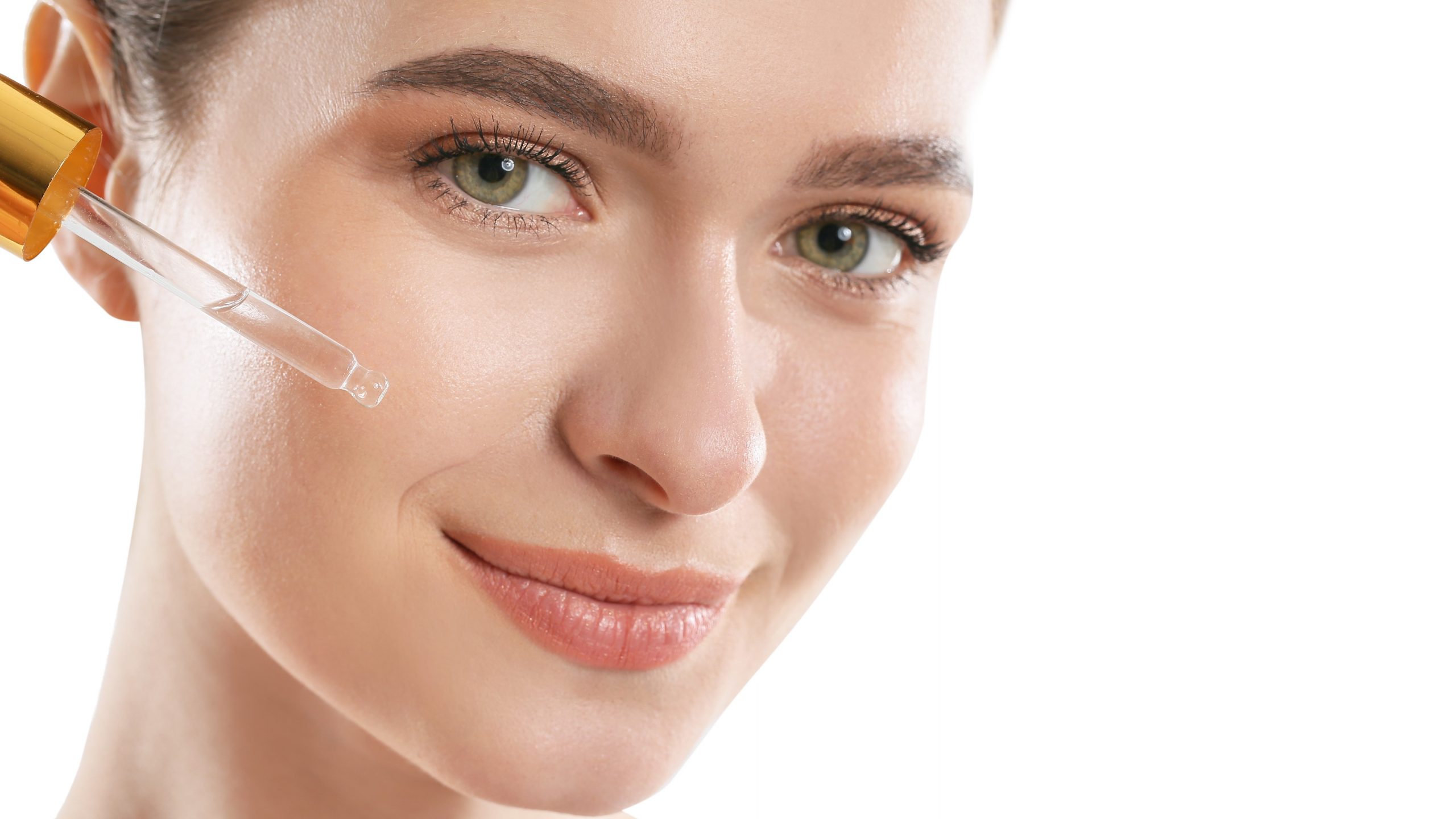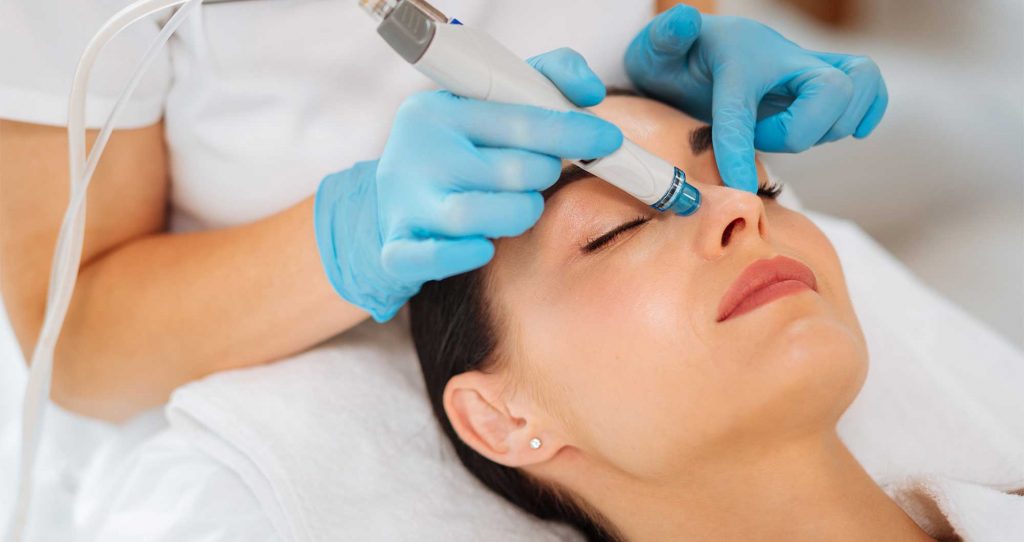When you research online for the best skincare regimen or products, Niacinamide and hyaluronic acid are the two key ingredients you may find. The social media handles are also flooded with influencers who promote niacinamide and hyaluronic acid along with the products with these two key elements. Realizing the benefits of niacinamide and hyaluronic acid, a lot of beauty product manufacturers use these acids in various products such as cleansers, serums, moisturizers, and more. But do you know the difference between these two new-age beauty factors? This article is a detailed explanation of ‘Niacinamide vs Hyaluronic acid’.
While hyaluronic acid is a natural sugar molecule produced by our body, Niacinamide is a Vitamin. Both of them serve different purposes. Most of you might be using these skincare ingredients without knowing their benefits. Choosing between the two will be surely a tough task. Let’s explore the properties, benefits, and differences of each so you can continue using niacinamide and hyaluronic acid with full confidence.
Hyaluronic Acid- Hydrating Agent
In the components list of modern beauty creams and serums, you might have noticed this 1.5%, 2%, or 5% hyaluronic acid. Dermatologists may even inject hyaluronic acid fillers to keep skin looking healthy and youthful. But what is this hyaluronic acid? Hyaluronic acid is a natural soft liquid substance produced in our body. Hyaluronic acid is mainly present in our joints/connective tissues and eyes. According to various studies, Hyaluronic acid occurring in the human body is actually glycosaminoglycan found in the form of a group of sugar molecules and unbranched carbohydrates and it is also called polysaccharides.
Hyaluronic acid is a super hydrating agent that can moisturize our skin, giving a supple plumpy look. Its main function is to retain the water content in our tissues, keeping the structure moist and lubricated. Besides, Hyaluronic acid has great anti-ageing properties. Because of its lubricant nature and varied properties, Hyaluronic acid is used in topical gels, serums, eye drops, and some injections.
As a skincare component, HA is best known for making dull or dry complexions look and feel softer, silkier, and plump. Skincare experts and dermatologists advise including hyaluronic acid in our skincare routines to keep our skin moisturized, giving a hydrated and youthful complexion.
Read on to learn more about the benefits of hyaluronic acid and get to know why this is a staple for your skincare habits.
Magical Power of Hyaluronic Acid
Sometimes, drinking even 3 or more litres of water a day cannot bind the moisture of your skin. Hyaluronic acid can hold up to 1000 times its weight in water. It functions as a humectant and absorbs water onto the skin surface, keeping the skin hydrated and moisturized. It slows down the rate of water evaporating from our skin. Hence, using a hyaluronic acid supplement can maintain the water retention of your skin, making it healthy and smoother.
Hyaluronic Acid Products
Though the term hyaluronic is linked with “acid”, its formula is generally safe for all skin types. If you are trying a HA product on your own, we recommend using a 2 percent or below concentration. Since a very low molecular weight of 5kDA Hyaluronic acid has the power to penetrate the skin, it may potentially carry other undesirable elements, chemicals, and bacteria more deeply into the skin. If you have sensitive skin, this might not be good for you. Anyways, Hyaluronic acid rarely causes any allergic reactions as our bodies also produces it.
Hyaluronic Acid Benefits for Skin
- Using Hyaluronic acid supplements and products can make your skin look smoother, supple and feel more hydrated.
- When the natural ageing process and exposure to other external sources like ultraviolet radion, pollution, etc decrease the natural hyaluronic content in our body, taking hyaluronic acid supplements may prevent the drop by adding extra amounts to the skin.
- Reduces wrinkles and fine lines on your skin.
- Eliminates dry and dull texture of your skin, giving a young complexion.
- Its anti-ageing property will protect the skin from ageing faster.
- Reduces redness and dermatitis.
- Helps improve the elasticity of the skin.
- Plays a key role in wound healing.
What is Niacinamide?
Niacinamide is a form of Vitamin B3 found in food and dietary supplements. Unlike, Hyaluronic acid, Niacinamide is not a naturally occurring substance in our body. As Vitamins are not produced by the body itself, they must be obtained through nutrition and topical application. Deficiency of Vitamin B3 can cause skin disorder, and affect the functioning of the brain, kidney and other conditions.
Niacinamide acts as a skin barrier, controlling the excess sebum and brightening the complexion, giving an even skin tone. The unique benefits of Niacinamide make this an active ingredient in a lot of skincare serums and topical creams.
Benefits of Niacianmide
- Niacinamide increases the production of Keratin, a protein that keeps your skin healthy and firm.
- Reduces inflammation and redness caused by eczema, acne, and other skin conditions.
- Minimizes the appearance of pores and also keeps the skin smooth
- Increases collagen production, thereby lightening dark spots and reducing hyperpigmentation.
- Gives an even skin tone and brightens the complexion.
- Niacinamide acts as a lipid barrier, helping your skin grow a ceramide (lipid) protectant, which in turn retain moisture.
- Regulates the production of excess sebum and treats oily skin.
- Protects against sun damage and rebuild healthy skin protecting the skin from the harms caused by ultraviolet rays.
- Cures acne and improve skin texture
- Promoting cellular metabolism and renewal.
- Reduce the appearance of fine lines and wrinkles
Niacinamide Products
You can find a huge number of topical products with Niacinamide but the concentration of Niacinamide in these products varies. Five percent or less is the most Niacinamide formulation.
Skincare experts suggest 5 percent Niacinamide products to treat hyperpigmentation and get an even skin tone. If you are a beginner or have sensitive skin, start with a lower concentration. Two percent niacinamide formula is also effective for curing several skin conditions like eczema, and dark spots.
Niacinamide goes well with most ingredients. Nevertheless, it is better to consult a dermatologist before using a product that contains multiple ingredients.
Niacinamide vs Hyaluronic Acid
So, Niacinamide or Hyaluronic acid, which formulation do you prefer?
Well, you can use both of them, since both these ingredients are generally safe to use for all skin types. Both have their own benefits. So you can use them considering your skincare requirements and goals. If you have any pre-existing allergies or repulsion to any skincare ingredients, do a patch test or consult your dermatologist to avoid negative impacts.
We don’t need to decide between niacinamide and hyaluronic acid. Instead, use them both together for great results. If you are struggling with dry and dull skin that has hyperpigmentation, find a serum with both of them. The application of these ingredients can always be followed by a good moisturizer to lock in hydration.
Also read, Benefits of Hydrafacial



